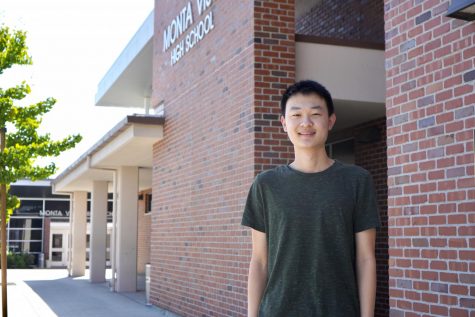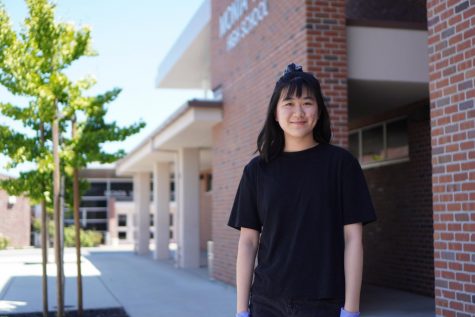The friends we overlook: Why need-based friends are not mindful friendship investments
The role of superficial friends in our day to day interactions
April 10, 2019
an I see what you wrote for that?”
“There was so much homework last night. I barely finished. You?”
“Did you have chemistry yet? Was the lab hard?”
We often find these inquiries tumbling from our lips. Classroom friends — the people who slump between the spectrum of passive strangers and friends. We think we’re close to these people, but in reality, we’re detached from their struggles. To us, these people serve as facets for us to pass our time.
When we thirst for companionship, need-based friends dart into our lives to fill our void of solitude. In the MVHS culture where people take what they want, need and don’t have — consolation, approval and affection — need-based friends are the perfect solution for catering to a person’s needs.
Need-based friends are there for us to talk to, especially when we’re alone. But these people are mere flings — they flicker on and off through our lives, never leaving lasting impact. We don’t showcase our raw self to these people as our relationship with them is often strictly need-based. Because we never sculpt genuine relationships with such “friends,” neither party is truly comfortable beyond a surface-level conversation. We often resort to meaningless small talk and avoid mentioning our personal matters. Whether it be comparing a jumble of scores or a clutter of point markings, we’re always seeking for these people to satisfy our emotional complexes.
Examples of these “friends,” especially common at MVHS, are the flurry of students we get to know from our classes. In class, they’re our closest friends. We constantly rely on them for help when we’re confused or for humor when we’re bored. But beyond the scope of the classroom, these people are insignificant in our interpersonal lives — these “friends,” whom we barely bat an eye at in the hallways, are the equivalent of outsiders. From a homework helper to a gossip confidant, these acquaintances exist to fulfill the needs of both parties. They’re the friends we overlook, the friends we dub as “Plan B,” the friends we know but don’t say out loud: superficial friends.
This may lead us to wonder why a rift exists between time killers and priority friends, or why we’re unable to treat every acquaintance with similar intimacy. Many of us don’t allow ourselves to sidestep that emotional barrier; instead, we tiptoe around discrete wants and needs.
For students, our academic instincts drive us to initiate these noncommittal “friendships,” whether in class or outside of school. However, such a dynamic extends beyond educational purposes, as we breathe each other in to satiate our asthma-like fuel of need. We need someone to hold our hands as we’re wading into unchartered waters — new settings, group dynamics and experiences. We need someone to relentlessly converse with. Need, need, need – in a relationship like this, there may be nothing more than tugging and pulling catered to our needs.
The reason is simple: we care, but we don’t care enough. We’re too absorbed in our academic welfare that meddling in any troubling affair which doesn’t concern our academic well-being is burdensome. To us, investing in relationships isn’t worth the hassle. Ultimately, the people we meet now will inevitably fade into blurred lines, all but a muted memory.
Re-inventing and preserving our friendships starts with expressing sympathy and thoughtfulness for others. While making lasting and authentic friendships with our need-based friends is achievable, we must take the initiative of being attentive to their feelings and concerns beyond just academics. Authenticity is, in essence, care — caring for their well being, their personal problems and their happiness. Investing a sliver of ourselves in somebody else is an embodiment of consideration; through rebuilding emotional relations, we can begin to unveil a person’s true persona rather than the shell of themselves they exhibit.
While investing in lasting friendships may seem difficult amid the ambitious academic culture at MVHS, it doesn’t take much effort for us to look past our short-term stress and interact with our classmates as genuine friends through small, incremental actions to show that we care. Even small gestures like remembering a friend’s birthday or wishing them luck on a test are effective ways that we can develop deeper intimacy with them. These investments may seem costly and far-fetched, but in time these sacrifices will build healthier relationships and can contribute to detoxifying MVHS culture.



















